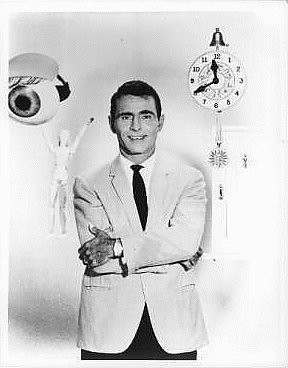If you’ve ever watched the original episodes of “The Twilight Zone,” you’ve gauged the objective of Red Serling’s 20-minute masterpieces: to show viewers what the world can become, the altruistic powers, but also the perils of mankind.
While the themes are projected in various ways, I’ve found that the most captivating segments deal with the familiar sensation of nostalgia. For me, a young adult navigating the uncertainty of the corporate world, weaving through a transitional period, those feelings of nostalgia often evoke sadness. Reflecting on the past means clinging to what made me feel confident, safe and comfortable.
But, I’ve been looking to channel these feelings into different outlets, flipping the confused, college student narrative on its head. When I’ve wrestled with these heavy, overwhelming thoughts of what’s to come and what I am leaving behind, I reflect on a specific scene from Season 1, Episode 5 of “The Twilight Zone,” the 20-minute interlude titled “Walking Distance.”
The story follows Martin Sloan, a man experiencing what can be characterized as anxiety with the onset of his aging process. With the glimmer of magic within “The Twilight Zone,” Sloan is suddenly strolling through his hometown, viewing his prior life as a young boy from the perspective of his current self.
The memories and sensations of the innocence surrounding childhood are prevalent for Sloan, instilling that notion of nostalgia, the feeling of comfort in familiarity; Sloan wants to stay. He doesn’t want to experience the return to the corporate world, he feels the safety of his childhood and longs for a permanent stay.
Toward the later portion of the episode, though, Sloan has a conversation with his father. As his adult self, Sloan receives advice from his father who would’ve been his parental figure as a young boy. Sloan expresses his desire to come back to his roots, to relish in his past and the joy within it. But, his father offers an alternative perspective.
Mr. Sloan says, “I guess we all want that. Maybe when you go back, Martin, you’ll find that there are merry-go-rounds and band concerts where you are. Maybe you haven’t been looking in the right place. You’ve been looking behind you, Martin. Try looking ahead.”
And Mr. Sloan, fictional character or not, is right. The past is often a mechanism for our comfort zone. The previous moments are glimpses of ourselves that we have been able to evaluate and act on.
The future is uncertain, tumultuous and never guaranteed. But, maybe that’s what we need to bolster success and gratitude. Maybe when we try looking ahead, we recognize that the sun will rise, the world will turn and that our best days are likely in our line of sight that projects forward, not backward.


